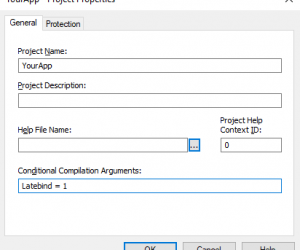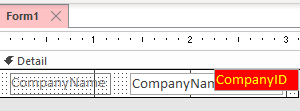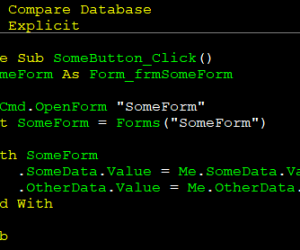What is the SQL Server equivalent to Access IIf() function? Access SQL IIf([ResultValue]>=1, [Result Value], Null) SQL Server CASE WHEN [Result Value]>=1 THEN [Result Value] ELSE NULL END
IS NULL: Understanding and Using the Null Value in Microsoft Access
In Microsoft Access, a null value is a value that is not assigned or unknown. When working with databases, it’s important to understand how to use and identify null values in order to ensure accurate and efficient data management. The IS NULL operator is one of the most useful tools for working with null values…
Access Web Apps to be retired
It was announced that Access Services is going to be retired. Details of the announcement may be found here: Updating the Access Services in SharePoint Roadmap. Additional timeline information along with possible methods for exporting your data out of an Access web app may be found here: Access web apps no longer supported. While these articles…
#LateBind Constant
In standard code, we make use of #LateBind conditional compilation constant, which is typically defined via project’s Conditional Compilation Argument in the dialog: NOTE: The dialog can be found via Tools → <project name> Properties, which is located below the Options menu item. The menu item caption will be different as it includes the project…
Use controls, not fields
Sometimes we need to use fields from a RecordSource that aren’t shown on the form. It is legal to reference them directly even if they don’t have a control. For example, we can have a form bound to a RecordSource like so: SELECT c.CompanyID, c.CompanyName FROM Companies; And only display CompanyName in a textbox but…
Access DateValue() function to SQL Server equivalent
What is the SQL Server equivalent to Access DateValue() function? Access SQL DateValue([Event Timestamp]) SQL Server Equivalent cast([Event Timestamp] as date) convert(date, [Event Timestamp])
Microsoft Access 2003 Language Reference [Access 2003 VBA Language Reference]
This reference contains conceptual overviews, programming tasks, samples, and references to guide you in developing solutions based on Microsoft Access. The reference contains the following sections: What’s New: Provides a list of new members by object and in alphabetical order. Concepts: Provides important concepts for developing custom Access solutions. Reference: Provides reference materials for the Access…
“Truthy” and “Falsy” Values
VBA is quite very loose in what it deems “truthy” and “falsy”. For example, this procedure can produce surprising result: If Me.MyBitField.Value = True Then ‘It is true Else ‘It is false End If At the first glance, it seems expected that if the bit field is set to 1, it would succeed. But in…
Minimizing stateful code
First we need to define what a state is. A state means that the object has variable(s) that may cause it to behave differently, depending on the content of the variables. As an example, the Forms collection is stateful: Forms(“SomeForm”).Visible = False This is legal code and will compile but we can’t be assured that…
Use properties instead of constant or magic numbers
A common programming mistake is to hard-code literals that corresponds to some property. That is particularly true with certain controls like tab controls & pages. The tab control exposes a Value property that indicates the current tab and the pages contains a PageIndex property that indicates its position in the tabs of the control. Thus,…







